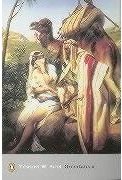 Edward Said is an American academic, he was born in Palestine and lived in Egypt for some time before immigrating to the United States.
Edward Said is an American academic, he was born in Palestine and lived in Egypt for some time before immigrating to the United States.Orientalism is a classic that Said had put with great care, the book had simply changed the way the West looks at the "Orient". It had even created a negative tone to the word "orientalism", modern western scholars are apparently distancing themselves from being called "orientalists".
The book re-examines the term "orient" and what it actually means to the Western reader, or maybe what it was made to mean to the Western reader. Orientalism argues that the West actually made its own Orient and that the Orient as know in the West is actually the Western discourse about it.
To illustrate the idea, Said gives as an example the way Orientalists made their "scholarly" analysis of the revolutions and rebellions against the colonial rule in Africa and Asia. For instance, in their analysis of the Arab revolt in Egypt, some Orientalists gave the impression that the Arab "violence", is somehow due to inherent tendencies to chaos rather than to legitimate pursuit of freedom and independence. Colonialism needed to be justified with orientalist theories like "Arabs/Africans/Indians are incapable of self-governance".
The book goes through the representations of the Orient since medieval times, this was essentially anti-Islam rant fuelled by the religious authorities in Europe. Said spends a good part of the book describing the orientalism of colonial times which is the period when "Oriental Studies" in Europe became of great importance to the colonial mouvements in Britain, France, Belgium, Germany and others. Indeed, one of the most central ideas in "Orientalism" is that the orientalists were essentially serving the colonial interests. Some critics blame Said for ignoring other orientalists who were not affiliated with colonial authorities and seemed to be solely interested into Oriental arts for instance. Mahmoud Darwish put this in his stunning beautiful symbolic style in a poem called Tibak (طباق):
نيويورك. إدوارد يصحو على كسل الفجر
يعزف لحناً لموتسارت
يركض في ملعب التِنِس الجامعيِّ.
يفكِّر في رحلة الفكر عبر الحدود
وفوق الحواجز
يقرأ نيويورك تايمز
يكتب تعليقَهُ المتوتِّر
يلعن مستشرقاً
يُرْشِدُ الجنرالَ الى نقطة الضعف في قلب شرقيّةٍ
يستحمُّ. ويختارُ بَدْلَتَهُ بأناقةِ دِيكٍ
ويشربُ قهوتَهُ بالحليب
ويصرخ بالفجر: لا تتلكأ
Orientalism, just like Said described, is still alive and well. Bernard Lewis, a British now living in the US is probably the best example of Said's orientalists. Despite his strong disagreement with Said, Lewis is regarded as a major figure of modern Middle Eastern studies. When Lewis justified the war in Iraq with "we free them or they destroy us", he summarised what Said has been trying to tell us in his book.
Despite my disagreement with some of Lewis analysis, I think his extensive research may give the Muslim world some very useful clues on how to regain more status and accelerate development. I will try to make my next politico-historical reading a Lewis.
Despite my disagreement with some of Lewis analysis, I think his extensive research may give the Muslim world some very useful clues on how to regain more status and accelerate development. I will try to make my next politico-historical reading a Lewis.


